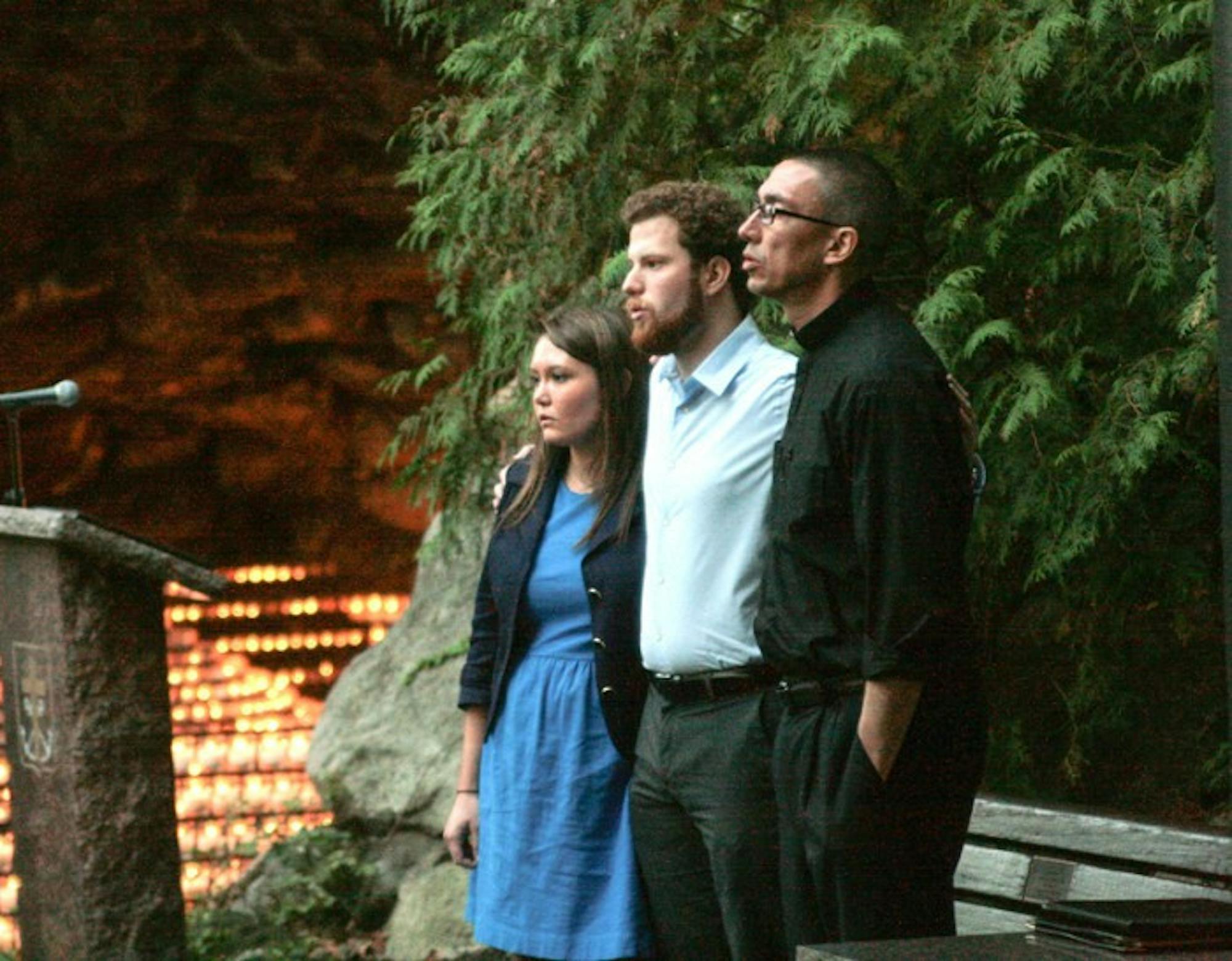By this end of this week, every undergraduate student living on campus at Notre Dame will have had a discussion about preventing sexual violence.
Student body president Alex Coccia said teams of trained students will generate conversations in their residence halls this week in response to higher than average reporting of sexual assault during the fall semester.
“It was born out of the fall semester and the number of crime alert emails we received,” Coccia said. “We want to be more proactive about making a change on our campus to prevent these things from happening at all.
“We recognize that not all assaults are reported. But the number at the beginning of the year led underclassmen to ask why and if this was the norm at Notre Dame.”
Coccia said the number of reports created a lot of concern. He said student government needed to do more to respond than the prayer services following every email alert, although these gatherings have a healing power and act as evidence of community support for survivors.
From Monday to Sunday nights, these volunteers will go door-to-door in their residence halls explaining a pledge against sexual violence and asking students to commit to prevention by signing and hanging pledges outside their rooms, Coccia said.
“We’re using the pledge as the focus of the campaign,” he said. “The action item is signing a pledge, and putting your signature to something means a great deal.”
The pledge consists of three commitments, Coccia said. Bystander intervention is the first goal of the campaign, which involves actively standing up and watching out for peers both on and off campus, he said.
“[This means] making the decision to actively engage with your peers with a level of trust and with communication to make sure everyone is doing okay, acting as our brothers’ and sisters’ keepers,” he said.
Joyce said she hopes students will make plans with their friends before entering social settings to ensure everyone has a safe way to get home with others.
“Keep an eye out for your friends,” she said. “We have a level of accountability for each other, and that’s what makes our community so great. The idea of bystander intervention is just an extension of the Notre Dame family.”
The second commitment in the pledge asks students to stand up against language that trivializes sexual violence in an effort to challenge misperceptions, Coccia said.
“Rape jokes are not funny. They invalidate the experiences of those who have suffered from rape, and you don’t know who is around you,” he said. “We recognize that no one ‘asks for it,’ and using that language perpetuates myths about sexual violence.”
Coccia said the pledge asks for a commitment to support survivors of sexual assault. Dozens of volunteers across campus now serve as important sources of knowledge about available services for victims, he said.
“All dorm facilitators are now fluent in what resources are available both on and off campus, and those that are confidential and not confidential,” Coccia said.
For undergraduate students living off-campus, Coccia said all campaign materials are available at oneistoomany.nd.edu, but Student government is looking for representatives in all major off-campus student housing developments to help spread the pledges. If interested in volunteering, he said to contact him directly by email.
Student body vice president Nancy Joyce said student government has worked with the Committee on Sexual Assault Prevention, the Gender Relations Center and Dr. William Stackman, deputy Title IX coordinator, to create the student-run and residence hall-focused campaign to more effectively address this serious issue.
“We thought about some different ways about how to run it, but we decided to focus on residence halls because the communities there are so strong and where life happens on a day-to-day basis,” Joyce said.
Sophomore Molly Howell, point-person for Breen-Phillips Hall, said the campaign’s one-on-one hall-focused discussions this week would bring awareness and personally challenge students to speak out against sexual violence.
“Sexual violence is a personal thing, but also a community issue … One act can affect more than just the people involved,” Howell said.
Adding to the student-run element of the campaign, Coccia said senior Jeff McLean designed the pledge forms and posters being distributed this week.
Coccia said after final conversations this weekend, teams will report back about the discussions they had in their halls, offering hall-specific information about opinions and stereotypes to move forward in future phases of the campaign. He said this constant feedback serves as an important source of the campaign’s effectiveness.
“We want to know what kind of conversations evolve around this topic,” he said. “We will recap with the dorm facilitators, and we will see what we can do moving forward. This is only the beginning of the conversation.”
Looking forward, Joyce said she hopes the campaign will address the connections between alcohol and sexual violence, as this year 17 of the 19 reports of sexual violence involved alcohol. She also said student government hopes to add sexual assault information to First-Year Orientation commissioner training and will work with Campus Ministry to make sure the sexual violence prayer services continue.
Campaign to educate students on sexual violence
Nancy Joyce, Alex Coccia and Fr. Pete McCormick lead a prayer service Sept. 22, 2013, in response to a sexual assault report.









